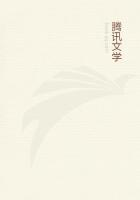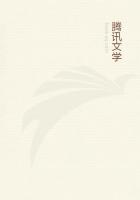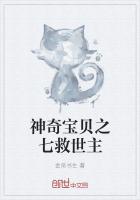Theocritus, Homer, AEsop, and Isocrates, probably in very limited editions, were in the hands of students. The purpose of Aldus was to put Greek and Latin works, beautifully printed in a convenient shape, within the reach of all the world. His reform was the introduction of books at once cheap, studiously correct, and convenient in actual use. It was in 1498 that he first adopted the small octavo size, and in his "Virgil" of 1501, he introduced the type called Aldine or Italic. The letters were united as in writing, and the type is said to have been cut by Francesco da Bologna, better known as Francia, in imitation of the hand of Petrarch. For full information about Aldus and his descendants and successors, the work of M. Firmin Didot, ("Alde Manuce et l'Hellenisme a Venise: Paris 1875)," and the Aldine annals of Renouard, must be consulted. These two works are necessary to the collector, who will otherwise be deceived by the misleading assertions of the booksellers. As a rule, the volumes published in the lifetime of Aldus Manutius are the most esteemed, and of these the Aristotle, the first Homer, the Virgil, and the Ovid, are perhaps most in demand. The earlier Aldines are consulted almost as studiously as MSS. by modern editors of the classics.
Just as the house of Aldus waned and expired, that of the great Dutch printers, the Elzevirs, began obscurely enough at Leyden in 1583. The Elzevirs were not, like Aldus, ripe scholars and men of devotion to learning. Aldus laboured for the love of noble studies;the Elzevirs were acute, and too often "smart" men of business. The founder of the family was Louis (born at Louvain, 1540, died 1617).
But it was in the second and third generations that Bonaventura and Abraham Elzevir began to publish at Leyden, their editions in small duodecimo. Like Aldus, these Elzevirs aimed at producing books at once handy, cheap, correct, and beautiful in execution. Their adventure was a complete success. The Elzevirs did not, like Aldus, surround themselves with the most learned scholars of their time.
Their famous literary adviser, Heinsius, was full of literary jealousies, and kept students of his own calibre at a distance. The classical editions of the Elzevirs, beautiful, but too small in type for modern eyes, are anything but exquisitely correct. Their editions of the contemporary. French authors, now classics themselves, are lovely examples of skill in practical enterprise.
The Elzevirs treated the French authors much as American publishers treat Englishmen. They stole right and left, but no one complained much in these times of slack copyright; and, at all events, the piratic larcenous publications of the Dutch printers were pretty, and so far satisfactory. They themselves, in turn, were the victims of fraudulent and untradesmanlike imitations. It is for this, among other reasons, that the collector of Elzevirs must make M. Willems's book ("Les Elzevier," Brussels and Paris, 1880) his constant study.
Differences so minute that they escape the unpractised eye, denote editions of most various value. In Elzevirs a line's breadth of margin is often worth a hundred pounds, and a misprint is quoted at no less a sum. The fantastic caprice of bibliophiles has revelled in the bibliography of these Dutch editions. They are at present very scarce in England, where a change in fashion some years ago had made them common enough. No Elzevir is valuable unless it be clean and large in the margins. When these conditions are satisfied the question of rarity comes in, and Remy Belleau's Macaronic poem, or "Le Pastissier Francais," may rise to the price of four or five hundred pounds. A Rabelais, Moliere, or Corneille, of a "good"edition, is now more in request than the once adored "Imitatio Christi" (dateless), or the "Virgil"' of 1646, which is full of gross errors of the press, but is esteemed for red characters in the letter to Augustus, and another passage at page 92. The ordinary marks of the Elzevirs were the sphere, the old hermit, the Athena, the eagle, and the burning faggot. But all little old books marked with spheres are not Elzevirs, as many booksellers suppose. Other printers also stole the designs for the tops of chapters, the Aegipan, the Siren, the head of Medusa, the crossed sceptres, and the rest. In some cases the Elzevirs published their books, especially when they were piracies, anonymously. When they published for the Jansenists, they allowed their clients to put fantastic pseudonyms on the title pages. But, except in four cases, they had only two pseudonyms used on the titles of books published by and for themselves. These disguises are "Jean Sambix" for Jean and Daniel Elzevir, at Leyden, and for the Elzevirs of Amsterdam, "Jacques le Jeune." The last of the great representatives of the house, Daniel, died at Amsterdam, 1680. Abraham, an unworthy scion, struggled on at Leyden till 1712. The family still prospers, but no longer prints, in Holland. It is common to add duodecimos of Foppens, Wolfgang, and other printers, to the collections of the Elzevirs. The books of Wolfgang have the sign of the fox robbing a wild bee's nest, with the motto Quaerendo.
Curious and singular books are the next in our classification. The category is too large. The books that be "curious" (not in the booksellers' sense of "prurient" and "disgusting,") are innumerable.
All suppressed and condemned books, from "Les Fleurs du Mal" to Vanini's "Amphitheatrum," or the English translation of Bruno's "Spaccia della Bestia Trionfante," are more or less rare, and more or less curious. Wild books, like William Postel's "Three Marvellous Triumphs of Women," are "curious." Freakish books, like macaronic poetry, written in a medley of languages, are curious.

